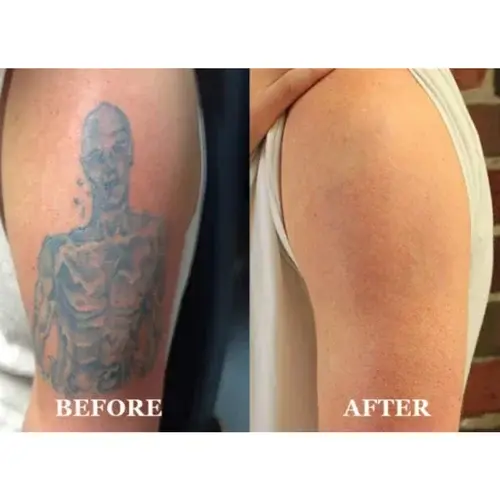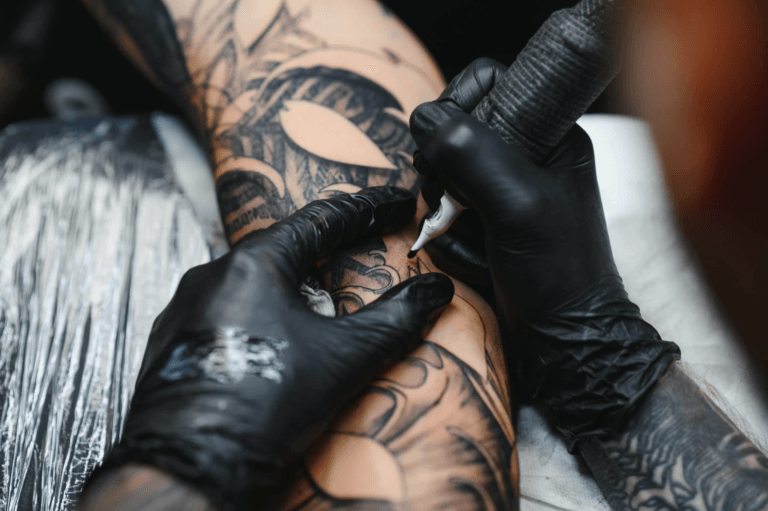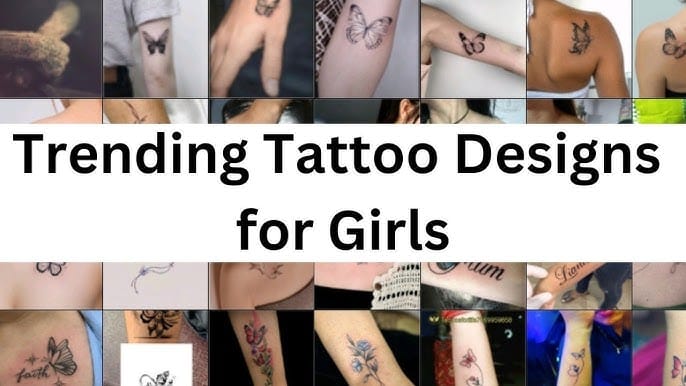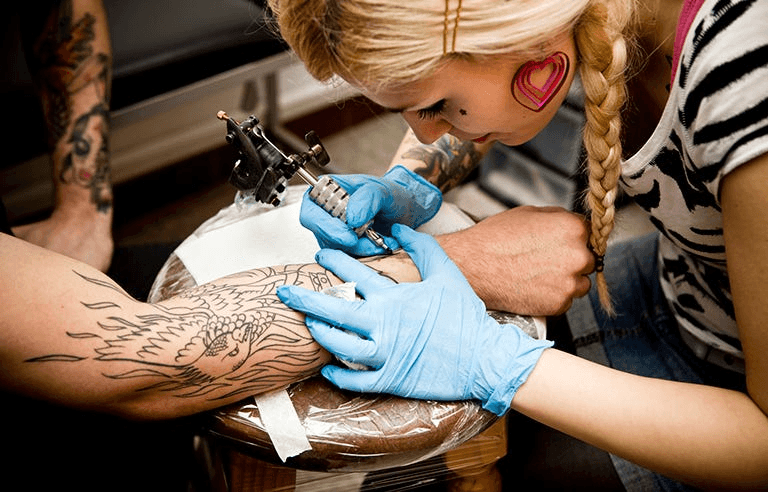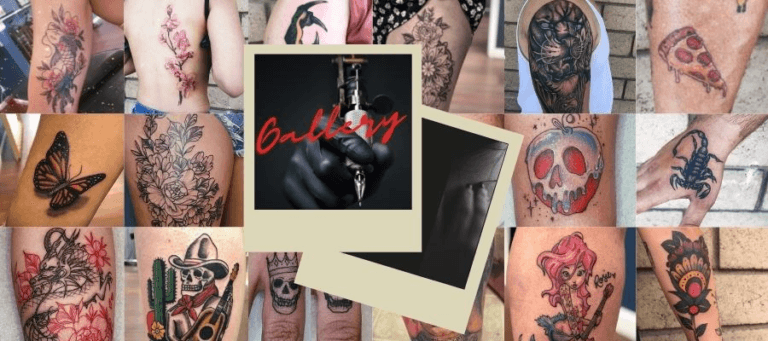The Rise of Vegan Tattoo Inks: Are They Healthier & Better?
In recent years, the tattoo industry has experienced a notable shift towards more ethical and sustainable practices. One of the most significant trends is the emergence of vegan tattoo inks. As more individuals adopt veganism in their diets and lifestyles, the demand for cruelty-free and eco-friendly tattoo options has surged. But what exactly are vegan tattoo inks, and are they genuinely healthier and better than traditional inks? Let’s explore the world of vegan tattoo inks to uncover the facts.

What Are Vegan Tattoo Inks?
Traditional tattoo inks often include animal-derived ingredients such as bone char, glycerin from animal fat, or shellac from beetles. These components are used to create vibrant colors and ensure the ink’s longevity. However, for those committed to a vegan lifestyle, these ingredients can be a deal-breaker.
Vegan tattoo inks, in contrast, are formulated without any animal products or by-products. Instead, they utilize plant-based or synthetic alternatives to achieve the same bold, lasting results. Common ingredients in vegan inks include carbon, logwood, and other mineral-based pigments. These inks are not only cruelty-free but also often free from harmful chemicals, making them a popular choice for health-conscious individuals.
Why Are Vegan Tattoo Inks Gaining Popularity?
The rise of vegan tattoo inks can be attributed to several factors:
- Ethical Considerations: Many people choose vegan inks to align their tattoos with their ethical beliefs. By opting for cruelty-free products, they ensure no animals are harmed in the process.
- Health Concerns: Traditional inks may contain heavy metals, carcinogens, or other toxic substances. Vegan inks are often viewed as a safer alternative, especially for those with sensitive skin or allergies.
- Environmental Impact: Vegan tattoo inks are generally more eco-friendly, as they avoid animal agriculture and often use sustainable sourcing methods.
- Cultural Shift: As veganism gains popularity, various industries are evolving to cater to the growing demand for plant-based options. The tattoo industry is no different.
Are Vegan Tattoo Inks Healthier?
A common question surrounding vegan tattoo inks is whether they are healthier than traditional inks. The answer is nuanced, but there are several reasons why vegan inks are often viewed as a preferable choice:
- Fewer Harmful Chemicals: Many vegan inks avoid heavy metals such as lead, mercury, and arsenic, which can sometimes be present in traditional inks. This can lower the chances of adverse reactions and long-term health concerns.
- Hypoallergenic Properties: Vegan inks tend to be less likely to trigger allergic reactions, making them a safer option for those with sensitive skin.
- Transparency in Ingredients: Manufacturers of vegan inks often emphasize transparency by clearly listing all ingredients. This empowers customers to make informed choices about what they are applying to their skin.
That said, not all vegan inks are the same. Some may still include synthetic chemicals or preservatives, so it’s essential to do your research and select reputable brands.
Are Vegan Tattoo Inks Better?
In terms of performance, vegan tattoo inks stand up well against traditional inks. Here’s why many tattoo artists and enthusiasts are opting for them:
- Vibrant Colors: Innovations in vegan ink formulations have led to pigments that are just as bright and durable as those found in non-vegan inks.
- Smooth Application: Vegan inks are recognized for their smooth texture, which makes them easier to apply and helps minimize the risk of scarring or uneven lines.
- Healing Process: Many people find that tattoos made with vegan ink tend to heal more quickly and with less irritation, largely due to the lack of harsh chemicals.
- Versatility: Vegan inks work well on all skin types and can be used for a variety of tattoo styles, ranging from delicate line work to vibrant, bold designs.
Choosing the Right Vegan Tattoo Ink
If you’re thinking about getting a tattoo with vegan inks, here are some tips to help you achieve the best results:
- Research Brands: Seek out reputable brands that focus on vegan inks. Some well-known options include Eternal Ink, Intenze Tattoo Ink, and Kuro Sumi.
- Consult Your Artist: Not every tattoo artist is experienced with vegan inks, so it’s crucial to find one who is. They can provide guidance on the best choices for your design and skin type.
- Check Ingredients: Even if an ink is labeled as vegan, it’s wise to look over the ingredient list to ensure it aligns with your standards.
- Ask About Aftercare: Vegan tattoos might need slightly different aftercare routines, so make sure to follow your artist’s recommendations for optimal healing.
The Future of Vegan Tattoo Inks
With the increasing demand for ethical and sustainable products, the outlook for vegan tattoo inks is promising. More brands are emerging in the market, providing a broader selection of colors and formulations. Furthermore, advancements in technology are expected to enhance the quality and safety of these inks even more.
For tattoo lovers, this translates to more ways to express themselves while staying true to their values. And for the environment, it represents a move towards a more sustainable and cruelty-free future.
Final Thoughts
The emergence of vegan tattoo inks signifies more than a passing trend; it embodies a significant cultural movement toward ethical consumption and sustainability. Whether you’re a dedicated vegan or just seeking a safer, healthier option, vegan inks present an appealing choice for your next tattoo.
At TattooArc, we are committed to helping you make well-informed choices regarding your body art. From selecting the ideal ink to discovering the perfect design, we’re here to support you throughout the entire process. So why not dive into the realm of vegan tattoo inks and see how they can elevate your tattoo experience?
By opting for vegan tattoo inks, you’re not only choosing for yourself—you’re also playing a part in fostering a more compassionate and sustainable world. And that’s worth celebrating.
